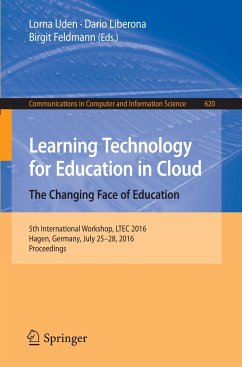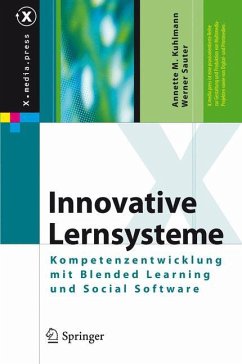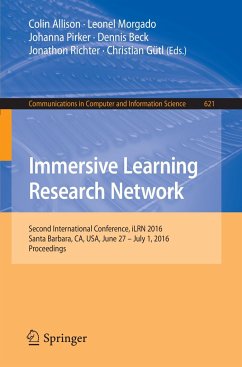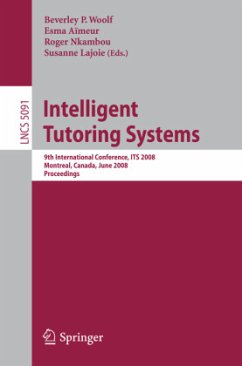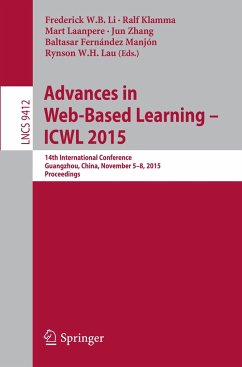
Changing Cultures in Higher Education
Moving Ahead to Future Learning
Herausgegeben: Ehlers, Ulf-Daniel; Schneckenberg, Dirk

PAYBACK Punkte
38 °P sammeln!
More and more educational scenarios and learning landscapes are developed using blogs, wikis, podcasts and e-portfolios. Web 2.0 tools give learners more control, by allowing them to easily create, share or reuse their own learning materials, and these tools also enable social learning networks that bridge the border between formal and informal learning. However, practices of strategic innovation of universities, faculty development, assessment, evaluation and quality assurance have not fully accommodated these changes in technology and teaching.Ehlers and Schneckenberg present strategic appro...
More and more educational scenarios and learning landscapes are developed using blogs, wikis, podcasts and e-portfolios. Web 2.0 tools give learners more control, by allowing them to easily create, share or reuse their own learning materials, and these tools also enable social learning networks that bridge the border between formal and informal learning. However, practices of strategic innovation of universities, faculty development, assessment, evaluation and quality assurance have not fully accommodated these changes in technology and teaching.
Ehlers and Schneckenberg present strategic approaches for innovation in universities. The contributions explore new models for developing and engaging faculty in technology-enhanced education, and they detail underlying reasons for why quality assessment and evaluation in new - and often informal - learning scenarios have to change. Their book is a practical guide for educators, aimed at answering these questions. It describeswhat E-learning 2.0 is, which basic elements of Web 2.0 it builds on, and how E-learning 2.0 differs from Learning 1.0. The book also details a number of quality methods and examples, such as self-assessment, peer-review, social recommendation, and peer-learning, using illustrative cases and giving practical recommendations. Overall, it offers a step-by-step guide for educators so that they can choose their own quality assurance or assessment methods, or develop their own evaluation methodology for specific learning scenarios.
The book addresses everyone involved in higher education - university leaders, chief information officers, change and quality assurance managers, and faculty developers. Pedagogical advisers and consultants will find new insights and practices for the integration and management of novel learning technologies in higher education. The volume fosters in lecturers and teachers a sound understanding of the need and strategy for change, and it provides them withpractical recommendations on competence and quality methodologies.
Ehlers and Schneckenberg present strategic approaches for innovation in universities. The contributions explore new models for developing and engaging faculty in technology-enhanced education, and they detail underlying reasons for why quality assessment and evaluation in new - and often informal - learning scenarios have to change. Their book is a practical guide for educators, aimed at answering these questions. It describeswhat E-learning 2.0 is, which basic elements of Web 2.0 it builds on, and how E-learning 2.0 differs from Learning 1.0. The book also details a number of quality methods and examples, such as self-assessment, peer-review, social recommendation, and peer-learning, using illustrative cases and giving practical recommendations. Overall, it offers a step-by-step guide for educators so that they can choose their own quality assurance or assessment methods, or develop their own evaluation methodology for specific learning scenarios.
The book addresses everyone involved in higher education - university leaders, chief information officers, change and quality assurance managers, and faculty developers. Pedagogical advisers and consultants will find new insights and practices for the integration and management of novel learning technologies in higher education. The volume fosters in lecturers and teachers a sound understanding of the need and strategy for change, and it provides them withpractical recommendations on competence and quality methodologies.





